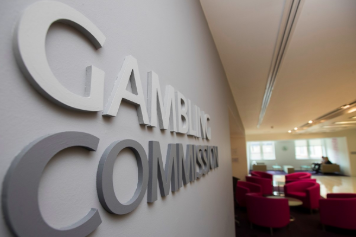The UK Gambling Commission’s (UKGC) Gambling Survey for Great Britain (GSGB) has received an endorsement for its push-to-web methodology from an independent review.
Patrick Sturgis, professor at the London School of Economics and review leader, highlighted the developments in the GSGB as “exemplary in all respects”. According to him, push-to-web will also introduce “a number of important benefits”.
Sturgis was commissioned for the review by the UKGC in November last year, with a particular focus on the push-to-web GSGB methodology after the Commission expressed confidence in its ability to deliver “better data”.
The goal of the review was to assess the effectiveness of push-to-web against the backdrop of existing survey approaches, including the impact on gambling participation estimates and prevalence of gambling harms.
Sturgis said: “The Gambling Commission has engaged with a broad range of stakeholders and followed industry standards of best practice in developing a survey design that can be expected to yield high quality and timely estimates of gambling prevalence in Great Britain.
“Following the launch of the GSGB, there are some key recommendations for the commission to consider to ensure the quality and robustness of the statistics continues to build stakeholder and public confidence.”
The review concluded with seven steps that Sturgis recommends the UKGC should take to address some of areas where the push-to-web methodology can improve. These include:
- Research to better understand the relationship between survey topic and the propensity of gamblers to respond to survey invitations.
- Research to understand the role of socially desirable responding as the driver of the difference in gambling estimates between in-person and self-completion surveys.
- Randomised experiment to evaluate the effect of the updated list of gambling activities on estimates of gambling prevalence and harm.
- Assess the extent of potential bias in the subset of questions administered to online respondents only.
- Monitor best practice developments within the area of household selection of adults in push-to-web surveys.
- Research on the prevalence of gambling and gambling harm in groups that are excluded from the GSGB because they are not included in the sampling frame.
- Seek opportunities to benchmark the estimates from the GSGB against a contemporaneous face-to-face interview survey in the future.
Tim Miller, Executive Director of Research and Policy at the UKGC, added: “We are delighted that Professor Sturgis’s report concludes that the Gambling Commission have followed best practice in developing the GSGB survey.
“We are clear that better evidence, driven by better data will lead to better regulation, which in turn will lead to better outcomes. We welcome the recommendations in the report to continue to understand the impact of the changes made to both the survey design and the methodology as we move forward with the launch.
“We recognise that all methodologies need to continue to evolve and improve over time and this independent report helps to highlight some initial areas of focus once our new approach has gone live.”
The UKGC confirmed that the official GSGB statistics from Wave 1 will be released at the end of February.
Bacta has moved swiftly to register its concerns regarding the methodology which will be used to undertake the Gambling Survey for Great Britain (GSGB) which is being commissioned by the Gambling Commission and which will inform regulatory policy moving forward.
However, there has been some concerns voiced within the industry, with Bacta’s President John Bollom personally writing to Chief Executive and Commissioner of the UK Gambling Commission (UKGC), Andrew Rhodes.
In the letter, Bollom warns of an inevitable “sample bias” when switching from the “gold standard” NHS Health Survey to an “experimental” push-to-web survey.
“Our concern and that of Bacta members relates to the integrity of the GSGB data which is particularly significant bearing in mind its central role in shaping the narrative surrounding gambling habits and the impact it will have informing regulatory policy,” Bollom added.
“We must all have confidence in the methodology and the data arising from such an important survey. I am pleased that Bacta will be meeting with Andrew Rhodes to explain our concerns in greater detail ahead of the survey’s publication.”
Finding the right balance in a post-Gambling Act Review was highlighted as a main challenge for the industry by UKGC’s Chief Executive Andrew Rhodes in his speech at the recent ICE London 2024 conference.









